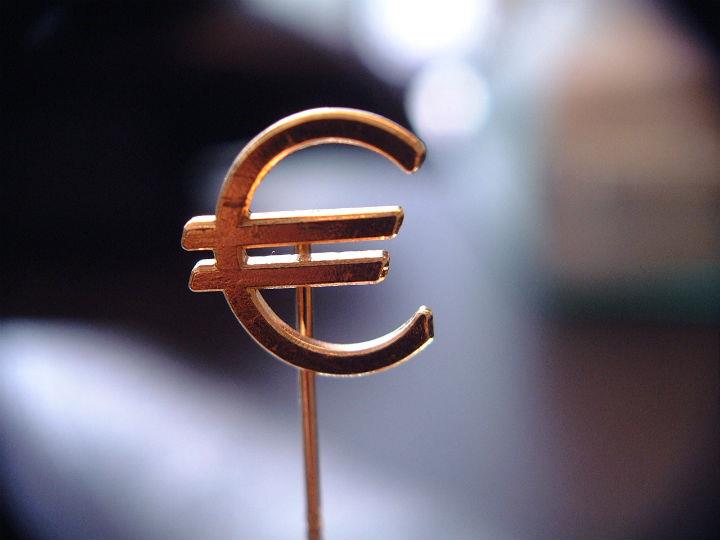The liberated school and social change
For the last six years the political elite, the state apparatus and Greek society have been strikingly unable to come up with ideas and programs to lead the country out of its economic crisis

In the case of the school, initiative and resources must be transferred to the schools’ stakeholders. The decisions affecting the day to day operations of the school should be made by those who comprise the school community: the school director, the teachers, parents and to some extent the students themselves.
by
Leonidas Phoebus Koskos*
If there is anything that has marked our society during this period, it is this sense of impasse, inertia, and inaction – the total lack of individual and collective initiative. In short, economic and social gridlock.
If this gridlock is discussed at all, it’s only in bar-room debates. We keep hearing how a “new national model” of economic reconstruction is needed. Implementing a new and different “model of production”, we’re told, could lead us out of the state of bankruptcy in which we seem to be mired.
Latent in this call for a “new model of production” is an awareness of what did and did not cause the crisis. The Greek crisis exists independently of the banks, Lehman Brothers and the global financial crisis. The Greek crisis is NOT an economic crisis. It is a crisis triggered by the role of the state in the society and economy of Greece, one I believe has been largely responsible for the lack of action in the last six years.
The role the state played is the same it has played since its very infancy. To put it simply, the Greek state is domineering and highly centralized.
The Greek state was established as a protectorate within the European system of security at the time. It did not naturally emerge from a society of free citizens. Nor did it organically reflect the will of a social class that owned the means of production. On the contrary, in this country of farmers and serfs it was the state that owned all the means of production and the vast majority of land.
In fact, state ownership of the means of production had been imprinted in the collective memory of Greeks as an essential part of the country’s time-honored “model of production”. It remains so to our time and day.
The institutional organization of the Greek state borrowed heavily from European models. It did not fit with either the pre-revolutionary organization of Greek society or the ethnic, linguistic and cultural diversity of its people. Even the awareness of the continuity of Greek culture and the forging of a sense of national identity only became possible in the mid-19th century.
In effect, a modernist, Western model of the state was grafted onto a pre-modern society that was clearly not a society of citizens.
Pre-revolutionary Greek society was not only pre-modern. It was also highly fragmented, and the centrifugal forces within this society led Kapodistrias and the Bavarian Regency to create a central(ized) state as a counterweight.
The Greek state and society have been in competition ever since. Six state bankruptcies and the international financial oversight that followed reinforced the state’s concentration of power and undermined individual initiative.
The effectiveness of the state was always tempered by the need to meet its obligations to its lenders. The latter’s oversight of income and expenses entailed control over investments. Control over development programs as well. The result was centralized economic planning.
In the first years of the Greek state, during the civil strife of 1824-1827. The revolutionary governments had already claimed the role of the sole administrator of the first foreign loans, which they used to pay—and control—its armed supporters. After each of its succession of defaults, the Greek state transformed its operations and modified its goals according to the needs of international financial oversight and to be able to collect the money it needed to repay its loans. Each time the state went bankrupt or disaster ravaged the economy, the country’s infrastructure and the remnants of state and society were used to rebuild the same model.
Throughout its history—and not, as many believe, only since the restoration of democracy after the fall of the junta—the Greek state has been the sole administrator of foreign money, be it foreign loans, European funds distributed by the state, or, in the case of the Marshall Plan, development aid.
The actions of American officers who arrived in the country in the late ‘40s to manage and monitor American aid was yet another step in this process of centralization. They found themselves faced with the unaccountability of the Greek private sector. At the same time, they were ideologically predisposed to give greater priority to state rather than individual initiative. These New Dealers were thus convinced that a stronger state would be more effective in economic reconstruction, even though they could see that the Greek state fell far short of Western standards.
For long periods of time in its history, the Greek state determined what would be produced in the country, how would be made, who would make it and whom net revenues would be distributed to. It set private-sector wages but also labor conditions, education policy and qualifications standards. Consequently employability. It determined who would have access to business capital and subsidies. For much of its history the Greek state was the country’s largest employer, its biggest consumer, and at times its most powerful businessman. It is now a massive, highly centralized entity with a monopoly of initiative, while the citizen is in a disproportionately weaker position.
A vicious circle is created. The greater the involvement of the state in social and economic affairs, the more citizens are deprived of the ability to choose, assume risk, and take initiative. This democratic deficit in turn hinders the emergence of enterprising citizens, to borrow a phrase from my dear friend, Thanasis Papandropoulos, who will be speaking next. This process of obstruction is particularly evident in the Greek educational system.
The state’s presence in education is ubiquitous. It intervenes in the relations between the school director and the teacher, and between the teacher and the curriculum. It intervenes even in decisions regarding what will be taught, by whom and in what way.
The central government says what books must be taught and how much of the material must be taught at what time. It regulates which visitors may come to the school to speak to students or the school can take its students for extra-curricular activities. It imposes specific instructors while refusing to assess their performances. It micromanages everything. In this way the state does away with the school’s right of choice but particularly the right of choice within the school itself. It turns the school into a reformatory.
The state’s intervention has broad and dire consequences. The ongoing war against the private school and the continued undermining of the model experimental public schools impede the free exchange of ideas and innovation, as it does the formation of a culture of civil society.
It is thus here, in the schools, that the model of decentralization must first be implemented.
As a general principle, the transition to a new model of production assumes that initiative and resources be decentralized. That is, devolved from the central government to municipal government, to regulatory agencies and other publicly funded organizations and to the citizens—stakeholders—themselves.
In the case of the school, initiative and resources must be transferred to the schools’ stakeholders. The decisions affecting the day to day operations of the school should be made by those who comprise the school community: the school director, the teachers, parents and to some extent the students themselves. For example, even if there is a nationally planned curriculum, stakeholders must have a part in making decisions on how the curriculum is to be delivered in a particular classroom in a particular school. Relations among faculty members and between the faculty and the school administration are more effectively managed at the level of the school itself, rather than in an office in the Ministry of Education.
Decentralizing the state, however, means more than administrative decentralization. It must involve genuine political decentralization. This means a shift in development goals and a fundamental change in the way society and politics are organized. It means the devolution of power and initiatives to a society of free, engaged citizens. It means the creation of an open and outward-looking civil society, anchored in Europe and the West and released from the protective custody of the state. A society in an open, globally oriented country with an open market. A society of “enterprising citizens”.
The “enterprising citizen” is not to be confused with the entrepreneur. It is rather a citizen endowed with critical reasoning and emboldened to decide among various choices, daring to innovate despite the risk of failure and accepting the consequences of his actions. The enterprising citizen is every engaged, responsible citizen. And it is precisely these responsible citizens that article 16 of the Constitution expects the school to cultivate.
By school I do not mean today’s inward-looking, centrally planned and state-controlled school. I am instead referring to autonomous, self-administered school units, both public (as the model experimental schools were intended to be) and private. Through these units, a meaningful dialog can emerge on educational reform, and with it, a model of social liberation. Such a dialog would stand as a creative alternative to the useless, prefabricated, so-called public dialog that once again has been launched in the aim of never being concluded.
There are many in this country who want to see the school change. Some because of a genuine desire to see society itself change, others out of guilt for what has happened in the last decades.
Countless Greeks throughout the country, from Eidomeni to Gavdos, have realized that society must become greater than the state, not smaller. The need to reverse the ever widening democratic deficit in the country justifies the creation of a grand alliance to create the liberated school of tomorrow. Anyone who wishes to see Greece remain member of the European Union has a place in this alliance. Anyone who believes in the transformative potential of education. Teachers who want to teach. Administrators who want to see true progress in their schools. Citizens who believe that the liberated school can lay the path toward a freer society.
As owners of private schools you have a particularly important role in this alliance. You have an obligation to foster educational excellence and autonomy within your institution, as you are called to support the liberation of the public experimental school. You must defend the right of Greeks to choose a quality public school education so that you can ensure the right of your own students to choose your school.
The school is imprinted in Greek collective memory as the “seedbed” of national self-awareness, a nucleus of society as important as the family. But it has also been seen as a tool of the ruling class to create a society of subservient subjects or party cadres. If I may make a politically incorrect remark, this is nothing less than intellectual genocide. Its victims include even prominent public figures.
The time has come to make the school the nucleus of a national reawakening.
The liberated school can begin to reverse the imbalance between the monopolistic, hyper-centralized, autocratic state and an increasingly disempowered citizenry. The school—the liberated school—can be at the heart of the great change for growth and sustainable development that our country needs.
It is up to you to set this change in motion.
*Esq., President of Hellenic American University
MORE ON Education
- Education, the best route to employment
- ECNAIS and the Independent Education
- The empowerment of society through freedom of education
- The importance of private schools in Greece
- Changing the world through education



 By: N. Peter Kramer
By: N. Peter Kramer
